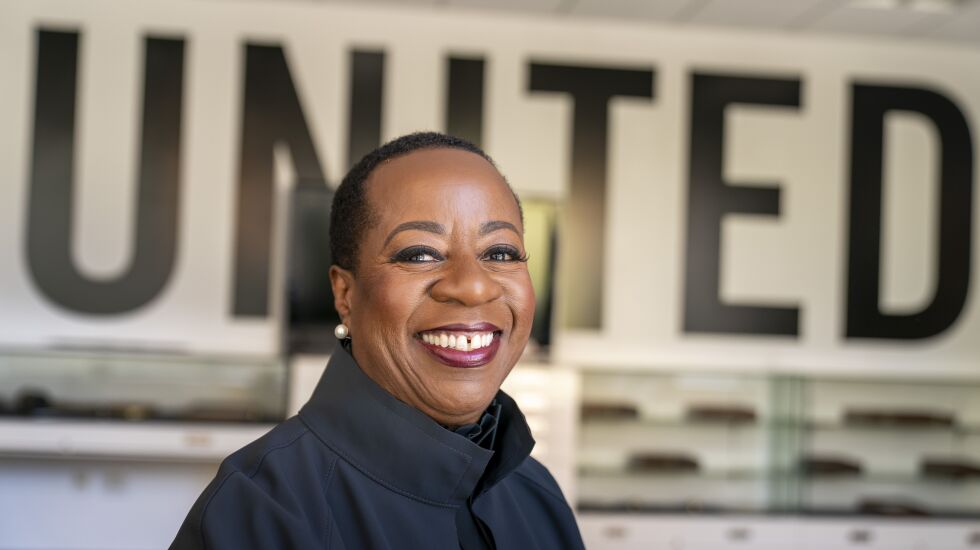
ALEXANDRIA, Va. — Angela Williams’ first year as United Way Worldwide’s president and chief executive officer has seen the philanthropic organization face challenges of high inflation, the war in Ukraine driving increased demand for charitable services and a need to rebuild trust in her organization.
As the first Black leader of United Way Worldwide, the former Air Force lawyer and former head of Easterseals says she’s well able to lead the organization that once was best known for its workplace-giving fundraisers.
She credits that to “being in situations over my lifetime where I have been the first or only woman or Black person and breaking what I call not just glass ceilings but concrete ceilings and breaking through.”
Williams, who has kept a low profile in her first year, says she plans to refocus the institution on local communities, helping shape solutions to their problems with the help of United Way’s considerable resources. In 2020, the organization gave more than $168 million in grants.
“My vision for United Way Worldwide is to create equitable solutions in communities,” Williams says, adding that people experiencing problems should have a voice in solving them.
United Way’s national 211 call line connecting people to services has seen an increase in requests in recent months, with people needing help accessing food, paying their utility bills or rent and finding housing.
“I feel this real sense of urgency,” Williams says. “Whether it’s government, whether it’s the nonprofit sector, whether it’s philanthropy, foundations, individuals — we have to come together because there is so much pressing need.”
Williams took over United Way Worldwide after three former employees accused it of tolerating a culture of sexism and misconduct — and retaliating against them for speaking out.
An outside investigation commissioned by the organization reported in February 2021 there was no evidence of “actionable harassment, discrimination or retaliation.” The three women who filed complaints with the federal Equal Employment Opportunity Commission told The Chronicle of Philanthropy at the time that the law firm conducting the investigation had not contacted them. The organization’s CEO Brian Gallagher resigned shortly after.
During World War II, local United Way groups consolidated their hold over workplace giving by allowing employees to donate a portion of their paycheck automatically to the organization. The United Way would then grant the pooled funds to local human service nonprofits, like the YMCA or Salvation Army.
That consolidated charitable requests directed to corporations and created a new group of middle-class donors who felt good about giving to organizations that supported others in the area where they lived.
Starting in the 1970s, though, forces including the decline of large manufacturing employers and a transition to service work challenged workplace giving and United Way’s dominance as a distributor of large amounts of funding. Those were compounded by social movements for civil rights, women’s rights and the protection of the environment, creating new communities that donors identified with and wanted to support.
“From that point on, the United Way has struggled to get as much money and to stay relevant as this kind of centralized, trusted entity between donors and the charitable recipients,” says Emily Barman, a Loyola University Chicago sociology professor who wrote a book about the organization.
To adapt, local United Ways — which pay membership dues to United Way Worldwide but are incorporated as separate nonprofits — tried to reduce their overhead. And many chose to fund a smaller number of organizations rather than give smaller amounts to a larger number of nonprofits.
The maelstrom that Williams stepped into also includes a large outlay of cash initiated under her predecessor as part of a partnership with Salesforce to create a software product called Philanthropy Cloud. United Way Worldwide’s tax filings show it paid more than $40 million between 2017 and 2020 to the company and a related contractor.
The software, which United Way Worldwide had the exclusive right to resell, competes with other programs that allow employees to donate from their paycheck to the charity of their choice and to find volunteer opportunities.







